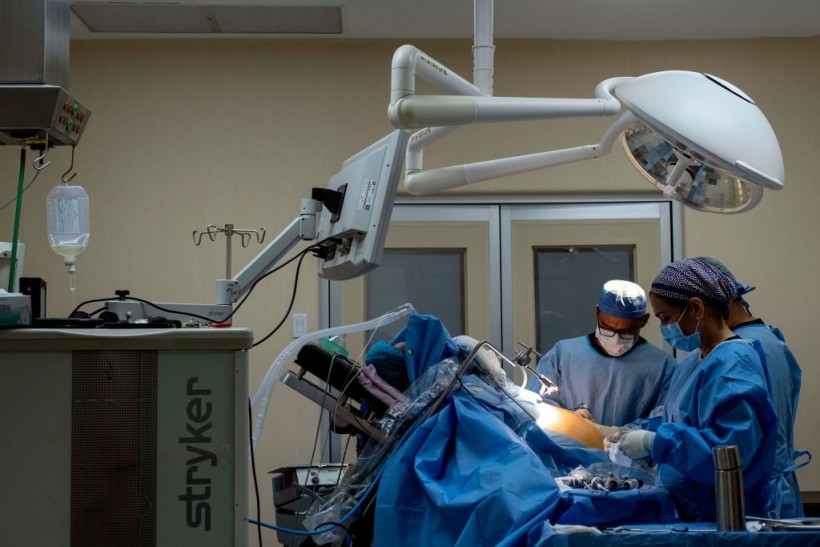Bariatric surgery is the most effective and invasive way to lose weight and keep it off. Scientific studies show that diets do not work long-term for most people and making that stomach flat is easier via surgical means. Those that undergo the procedure lose over a quarter of their previous body weight.
A new study suggests that bariatric surgery is not only for losing weight but addresses the link between obesity and cancer. The invasive procedure seems to lower the risk of obesity-related cancers and decrease mortality significantly.

View of doctors carrying out a bariatric surgery at Hospital Oasis of Hope in Tijuana on October 4, 2019, Baja California state, Mexico.
SPLENDID Study
The study is known by its short name SPLENDID, which stands for Surgical Procedures and Long-term Effectiveness in Neoplastic Disease Incidence and Death. It is a matched-cohort study in which they select a group of people who got some type of intervention and then select a control group with the same characteristics as the first group for comparison.
Study lead author Dr. Ali Aminian, the director of Bariatric & Metabolic Institute in Cleveland Clinic, even posted the results in a Twitter post on June 3.
The SPLENDID study identified a cohort of 5,053 adults who had obesity and then underwent bariatric surgery at Cleveland Clinic between 2004 and 2017. Then, the team identified five adults who were similar in demographics and clinical history, except they had not had bariatric surgery. They found 25,265 patients in the control group. In total, there were 30,318 patients in the study.
According to Forbes, the team defined obesity-related cancer as 13 types of malignant cancer that the International Agency for Research on Cancer Handbook Working Group identified as related to obesity. Examples of these cancers are liver cancer, gallbladder cancer, pancreatic cancer, renal cell carcinoma, postmenopausal breast cancer, a certain type of stomach cancer, and many others.
After a decade of observation, those with bariatric cancer had an average of 19.2% smaller chances of developing obesity-related cancer and fewer chances of dying from those diseases than the control group. The findings add to the growing knowledge that the procedure can make a big difference in a person's life.
ALSO READ: Bariatric Surgery Alters Taste Buds Leading to Weight Loss, Study Says
Bariatric Surgery is Not for Everyone
Despite the positive results of the SPLENDID study, researchers emphasized that bariatric surgery is not for everyone. As Science Alert reported, people respond differently to the procedure. They may even have side effects that can be intense, or they could not change any psychological problems a person has with food.
The American Society for Metabolic and Bariatric Surgery (ASMBS) created some guidelines on who should be the potential candidates for bariatric surgery.
First, they should have a Body Mass Index (BMI) of ≥ 40 or more than 100 pounds overweight. Second, they should have one or more obesity-related comorbidities, like type II diabetes, hypertension, sleep apnea, respiratory disorders, fatty liver, and osteoporosis. Lastly, they have problems achieving healthy weight loss for a period of time.
But passing all criteria does not automatically mean that they should definitely get bariatric surgery. It means that they have the opportunity to talk to health practitioners about this option. Aminian said that patients who have pre-cancerous lesions should be strongly considered for effective weight loss therapies, such as bariatric surgery.
RELATED ARTICLE: Bariatric Surgery Gives More Benefits Than Just Help Lose Weight, Studies Show
Check out more news and information on Obesity in Science Times.














